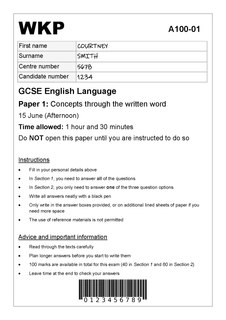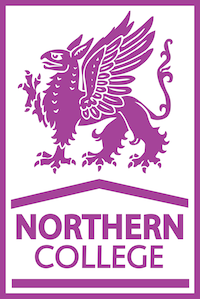In Australia, technical and further education or TAFE institutions provide a wide range of predominantly vocational courses, mostly qualifying courses under the National Training System/Australian Qualifications Framework/Australian Quality Training Framework. Fields covered include business, finance, hospitality, tourism, construction, engineering, visual arts, information technology and community work.

The General Certificate of Secondary Education (GCSE) is an academic qualification in a particular subject, taken in England, Wales, and Northern Ireland. State schools in Scotland use the Scottish Qualifications Certificate instead. Private schools in Scotland may choose to use an alternative qualification.
An associate degree is an undergraduate degree awarded after a course of post-secondary study lasting two to three years. It is a level of qualification between a high school diploma, GED, and a bachelor's degree.
Further education in the United Kingdom and Ireland is education in addition to that received at secondary school, that is distinct from the higher education (HE) offered in universities and other academic institutions. It may be at any level in compulsory secondary education, from entry to higher level qualifications such as awards, certificates, diplomas and other vocational, competency-based qualifications through awarding organisations including City and Guilds, Edexcel (BTEC) and OCR. FE colleges may also offer HE qualifications such as HNC, HND, foundation degree or PGCE. The colleges are also a large service provider for apprenticeships where most of the training takes place at the apprentices' workplace, supplemented with day release into college.

Education in Northern Ireland differs from systems used elsewhere in the United Kingdom, although it is relatively similar to Wales. A child's age on 1 July determines the point of entry into the relevant stage of education, unlike England and Wales where it is 1 September. Northern Ireland's results at GCSE and A-Level are consistently top in the UK. At A-Level and BTEC level 3, one third of students in Northern Ireland achieved A and distinction grades in 2007, which is a higher proportion than in England and Wales.
A graduate diploma is generally a qualification taken after completion of a first degree, although the level of study varies in different countries from being at the same level as the final year of a bachelor's degree to being at a level between a master's degree and a doctorate. In some countries the graduate diploma and postgraduate diploma are synonymous, while in others the postgraduate diploma is a higher qualification.
The National Certificate is a higher education qualification in a technology discipline offered by higher institutions across the globe. Each country has its own specifications about the certificate.

Third-level education in the Republic of Ireland includes all education after second-level, encompassing higher education in universities and colleges and further education on Post Leaving Certificate (PLC) and other courses. The degree-awarding authorities approved by the Government of Ireland, which can grant awards at all academic levels, are University of Dublin, National University of Ireland, Royal College of Surgeons in Ireland, Dublin City University, Technological University Dublin, Quality and Qualifications Ireland, St. Patrick's College, Maynooth, and University of Limerick. The King's Inns of Dublin has a limited role in education specialising in the preparation of candidates for the degree of barrister-at-law to practice as barristers. Medical schools in Ireland also have particular regulation. There were seven establishments of higher education within Ireland ranked among the top 500 universities worldwide by the Times Higher Education Supplement in 2008.
The Postgraduate Certificate in Education (PGCE/PGCertEd) is a one- or two-year higher education course in England, Wales and Northern Ireland which provides training in order to allow graduates to become teachers within maintained schools. In England, there are two routes available to gaining a PGCE – either on a traditional university-led teacher training course or school-led teacher training.

Northern College is an adult residential college based at Wentworth Castle in Barnsley, South Yorkshire, England.

Solihull College & University Centre, formerly called Solihull College of Technology, is a further education college located in the Metropolitan Borough of Solihull, in the West Midlands, England. The College has two main campuses; the Blossomfield Campus in central Solihull and the Woodlands Campus based in Smith's Wood, north Solihull. The Principal of the College is John Callaghan.

South Eastern Regional College (SERC) is a further and higher education college in the south-east of Northern Ireland.
In the UK education sector, there are a wide range of qualification types offered by the United Kingdom awarding bodies. Qualifications range in size and type, can be academic, vocational or skills-related, and are grouped together into different levels of difficulty. In England, Wales and Northern Ireland, qualifications are divided into Higher Education qualifications, which are on the Framework for Higher Education Qualifications (FHEQ) and are awarded by bodies with degree awarding powers, and Regulated qualifications, which are on the Regulated Qualifications Framework (RQF) and are accredited by Ofqual in England, the Council for the Curriculum, Examinations and Assessment in Northern Ireland and Qualifications Wales in Wales. In Scotland, qualifications are divided into Higher Education qualifications, Scottish Qualifications Authority qualifications and Scottish Vocational Qualifications/Modern Apprenticeships, which are on the Scottish Credit and Qualifications Framework (SCQF). Scottish Higher Education Qualifications are on both the SCQF and the FHEQ.
Examination boards in the United Kingdom are the examination boards responsible for setting and awarding secondary education level qualifications, such as GCSEs, Standard Grades, A Levels, Highers and vocational qualifications, to students in the United Kingdom.
Accounting Technicians Ireland is a professional body for Accounting Technicians on the island of Ireland. They have over 10,000 members and students in the Republic of Ireland and in Northern Ireland.
The Business and Technology Education Council (BTEC) is a provider of secondary school leaving qualifications and further education qualifications in England, Wales and Northern Ireland. Whilst the T in BTEC previously stood for Technical, according to the DFE (2016) it now stands for Technology. BTECs originated in 1984 and were awarded by Edexcel from 1996. Their origins lie in the Business Education Council, formed in 1974 to "rationalise and improve the relevance of sub-degree vocational education". It is a wholly owned subsidiary of Pearson plc.
Higher education accreditation is a type of quality assurance process under which services and operations of post-secondary educational institutions or programs are evaluated to determine if applicable standards are met. If standards are met, accredited status is granted by the agency.
The national qualification frameworks in the United Kingdom are qualifications frameworks that define and link the levels and credit values of different qualifications.







